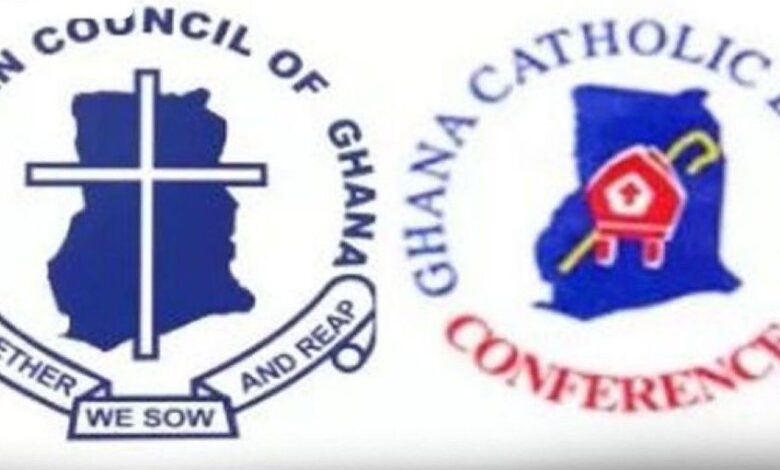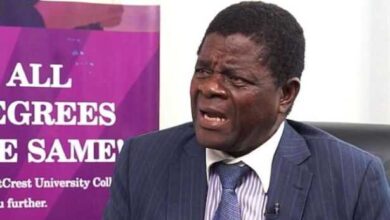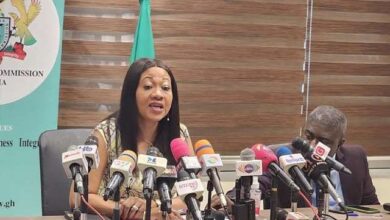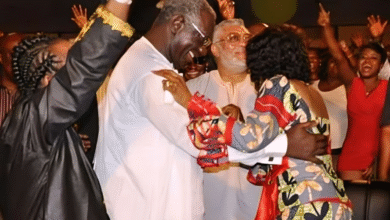Our Christian Leaders Goofed

The official marginalisation of minority groups especially religious minority groups is the last thing any progressive society should allow to happen.
Respectfully, our Christian leaders goofed. As an official document, that press statement by the Ghana Catholic Bishops’ Conference and the Christian Council of Ghana legitimises the marginalisation of Muslims in Christian mission schools.
Advancing the position that, ‘if you come to Rome, do what Romans do, and if you can not, do not come to Rome, as you are free to choose to go elsewhere’ suggests hostility, segregation and intolerance even though it may be regarded as a valid argument.
These two Christian leadership organisations, even though religious in nature, have a sociopolitical role in our society. It was therefore politically incorrect of them to have situated their position on the matter in the manner they did, especially considering the provisions in the Memorandum of Understanding on Government-Assisted Mission Schools signed on 15th April, 2024 and validated by Ghana Education Service on 11th April, 2025 that indicate some agreements reached on common grounds by all stakeholders.
Imagine a society where Christians and Muslims never integrate in a formal education setting from basic to tertiary levels because there is zero tolerance for Muslims practising their faith in Christian mission schools and vice versa. As a result, each of the religions have their own mission schools at all levels, and schools are chosen based on the religion that founded the school that will tolerate religious beliefs and practises.
Is this the kind of society we want for Ghana?
Regarding the sensitivity of public discourse on religious matters, particularly, its potential to elicit emotive and inflammatory reactions, this position should not have come from the two most prominent national Christian leadership organisations in Ghana.
The statement is in bad taste as it has the potential of derailing the gains Ghana has made all these years from upholding religious freedoms, integration and tolerance especially among Christians and Muslims. By that statement, our Christian leaders risk being on the wrong side of history.
Is common ground too hard and impossible to find?
In conclusion, I believe that it is possible to have a constructive dialogue among all stakeholders to ensure that a common ground is reached so we can have religious freedom, integration and tolerance in both Christian and Muslim mission schools.
By
Chris Atadika
Doctoral Researcher
University of Ghana
GHANA CATHOLIC BISHOPS’ CONFERENCE & CHRISTIAN COUNCIL OF GHANA
STATEMENT ON CHRISTIAN MISSION SCHOOLS ISSUED BY THE GHANA CATHOLIC BISHOPS’ CONFERENCE AND THE CHRISTIAN COUNCIL OF GHANA
TUESDAY, 25 NOVEMBER 2025
The question of whether non-Christian students – particularly Muslims – should be allowed to fully practise their religion within Christian mission schools in Ghana has become one of the most sensitive and widely debated issues in our national educational landscape. As proprietors, we are often called upon to explain why we insist on maintaining the Christian identity, practices, and ethos of the schools we founded. Our position is not rooted in hostility towards other faiths, but in a desire to preserve the integrity of institutions we have built and nurtured for over a century – a mission that touches history, law, culture, educational philosophy, and the Church’s foundational role in Ghana.
Our historical and proprietorship claim forms the cornerstone of our argument. Christian mission schools were not created by the state. They arose because the different Churches – Catholic, Methodist, Presbyterian, Anglican, and others – saw education as a natural expression of our missionary mandate. We acquired the land, built the schools, trained the teachers, and shaped the ethos long before the modern State of Ghana existed. When the government began assisting us – primarily by paying teacher salaries and regulating curricula – it joined an already functioning system. State support, therefore, is a partnership, not a takeover. The ownership and identity of these schools reside with us. Government assistance does not diminish this identity, nor does it confer the right to alter the core religious character that defines these institutions.
Closely linked to this is the principle of freedom of choice. No student is compelled to attend a Christian mission school. Parents choose our institutions freely, often because of their proven track record in academic excellence, discipline, and moral formation. They are aware from the outset that our schools operate within a Christian worldview, gather for Christian worship, and uphold Christian values. Because attendance is voluntary, it is unreasonable for anyone to demand that we change our core character to accommodate their religious preferences. Ghana offers many alternatives – fully public schools, Islamic schools, and private institutions – ensuring that the rights of non-Christian students are respected without requiring us to dilute our identity.
Preserving our moral and disciplinarian ethos is central to the success of our educational mission. Our schools are known not only for academic excellence but also for cultivating integrity, responsibility, discipline, and service. Permitting separate religious practices, uniforms, and prayer schedules would fracture the communal unity and discipline that underpin our school’s ethos. A cohesive community – guided by shared values, common worship, and a single code of conduct – has consistently produced graduates whose virtues endure throughout their lives. Parallel religious systems could erode this cohesion and weaken the qualities that have made our mission schools strong.
We also recognise the practical challenges that accommodating multiple religions would create. Adjusting timetables, allocating prayer rooms, revising uniforms, or managing perceptions of inequality would impose significant administrative burdens. These challenges are not hypothetical; they risk undermining the order, focus, and equality that are essential for discipline and academic excellence. A single, unified school culture serves the entire student body far more effectively than a fragmented environment in which students operate within separate religious frameworks.
Our position is grounded in constitutional and legal principles, particularly the rights to freedom of association and religious liberty. These rights protect both individuals and institutions. As Christian communities, we have the constitutional right to operate schools that express our faith. Expecting us to suppress the Christian identity of our schools to accommodate every religious group would infringe upon this freedom. The religious character of our schools is essential, not incidental. Maintaining it is both legitimate and lawful, even while welcoming students from diverse backgrounds who freely choose to join our mission.
In this context, we note the Memorandum of Understanding (MoU) adopted by Government-Assisted and Private Mission Schools, which was validated on 15th April 2024. Developed by the Conference of Managers of Education Units (COMEU) with support from the National Peace Council, the MoU affirms the long-standing partnership between the Government and Mission bodies. It recognises the vital role of the Missions and draws on the 1992 Constitution’s guarantee of equal educational opportunities. The guidelines address issues such as fasting, dress codes, and worship spaces, and they appropriately emphasise inclusivity, tolerance, and respect for diversity within the established framework of our schools.
Our understanding of the historical partnership between Church and State is equally important. For generations, the State has collaborated with the Church in education, healthcare, and social services, always respecting our identity and mission. The State chose to support mission schools because we had already built a trusted and successful system. Its role is to support, not redefine, the mission that has made these schools pillars of national development. Any attempt to override our religious identity risks damaging this longstanding relationship and discouraging future partnerships that benefit the nation.
Ultimately, our stance is rooted in the very heart of our missionary purpose. These schools were never established merely to instruct in mathematics, literature, or science. They were founded to form young people holistically—intellectually, morally, and spiritually—in the light of the Gospel. Christian worship, formation, and values are not peripheral additions; they are integral to our identity and the very reason for our existence. To demand that we secularise our environment or remove Christian practices is to undermine the foundational mission that brought these institutions into being.
In conclusion, our position is irrevocably grounded in history, protected by constitutional law, and affirmed by a proven educational philosophy. Financial assistance from the state must not be mistaken for state ownership, nor does it grant any party—governmental or religious—the authority to redefine the character of the institutions we established.
We demonstrate respect for the rights of all students by welcoming those of other faiths while upholding their freedom to choose schools that reflect their own beliefs. Our parallel duty is to safeguard the Christian identity, values, and practices that are the defining heart of our schools and have profoundly shaped Ghanaian society for generations. Ultimately, defending this heritage is not an act of exclusion; it is a vital affirmation of religious freedom, institutional autonomy, and the enduring pursuit of educational excellence.
Signed by
DR. BLISS DIVINE AGBEKO
CHAIR
CCG
MOST REV. MATTHEW KWASI GYAMFI
PRESIDENT
GCBC





